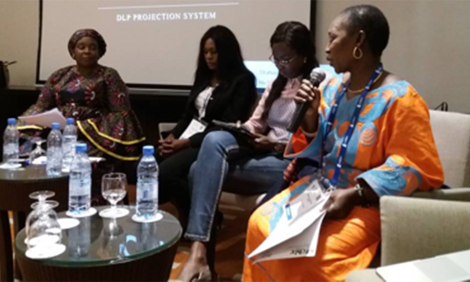
Feminist talk
Talking community networks at AfChix TechWomen Summit 2018
In this report back from AfChix TechWomen Summit 2018, Kazanka Comfort talks about the inclusion of young women in science and tehcnology programs in university, discussions around the possibilities offered by community networks to own and manage infrastructure by the people. In particular Kazanka looks at how women are affected by sectarian conflict and working with ICTs and training in…

Feminist talk
[SPECIAL EDITION] There is no opting out.: Indigenous women in Malaysia and questions of access
In this article, Serene Lim takes a closer look at how questions of access to the internet relate to the struggles of indigenous people and their movement for rights. Rather than the top-down imposition of connectivity, projects for access should align with their social context and as part of their right to sustainable development and right to equal participation.

In depth
[SPECIAL EDITION] Interview with Maggie Mapondera : A feminist internet must always be grounded offline
In this interview with Maggie Mapondera, she unpacks movement-building and the role of ICTs. Movements are built around shared stories and passions, and ICTs are one aspect of how momentum is built and sustained around a cause. Here Maggie Mapondera shows how women's stories are powerful and can potentially change the world, but we must listen with care and integrity.

Publication
Use of mobile phones by the rural poor; Gender perspectives from selected Asian countries
Acknowledging the differences in perceptions between genders, and between urban and rural dwellers, what must be realized is that these differences are often not unique to aspects related
to the mobile phone. The concerns, needs, and benefits ascribed to the mobile phone are more a reflection of people’s existing societal, familial, and gender norms prevalent in their environments, rather…
to the mobile phone. The concerns, needs, and benefits ascribed to the mobile phone are more a reflection of people’s existing societal, familial, and gender norms prevalent in their environments, rather…





